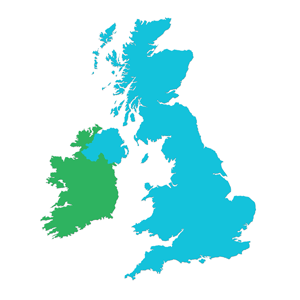Northern Ireland judge rejects legal challenges to Brexit

A judge in Northern Ireland has turned aside two of the first legal challenges to the United Kingdom leaving the European Union.
According to The Guardian, Justice Paul Maguire, a High Court Judge in Northern Ireland, ruled Friday that the court lacked the power to stop the government from triggering Article 50 of the Lisbon Treaty, which signatories must invoke if they wish to leave the European Union.
Maguire dismissed two challenges to the Brexit process: a case brought by man who lost a son during the Troubles who argued that, because Northern Ireland voted to remain, its devolved parliament should have the right to vote on whether or not it wants to leave the EU; and a separate case brought by politicians arguing that Northern Ireland should be exempt from the Brexit.
The Troubles was a period of political unrest and violence in Northern Ireland following the Bloody Sunday massacre of protesters by British soldiers in 1968, and it was ended by the signing of the Good Friday Agreement (also known as the Belfast Agreement) in 1998. Among the elements of the treaty were the disarming of paramilitary groups; the establishment of the Northern Ireland Assembly; a relaxing of border restrictions between Northern Ireland and the Republic of Ireland; and agreement by Great Britain to abide by the European Convention of Human Rights in Northern Ireland. The people of Northern Ireland were also given the right to both British and Irish citizenship. An earlier article in the Telegraph goes into detail about how Brexit could complicate enforcement of the terms agreed to in the Good Friday Agreement.
Maguire stated that the Good Friday Agreement could not be used to block the Brexit, stating that the treaty only dealt with the question of whether “Northern Ireland should remain as part of the UK or unite with Ireland.”
According to Maguire, there are currently additional legal challenges to Brexit pending in English courts. He made clear that his rulings would not affect those cases while acknowledging that he would not have the final word as to how Brexit would affect Northern Ireland. “While the wind of change may be about to blow, the precise direction in which it will blow cannot yet be determined, so there is a level of uncertainty, as evidenced by the discussion about how the Northern Ireland land border with Ireland was affected by withdrawal from the EU,” Maguire wrote. According to Bloomberg, both cases can be appealed to the U.K. Supreme Court.
“We welcome the court’s judgment, which agrees with us that the government can proceed to trigger Article 50 as planned,” said a spokesperson for the government. “We will now await the outcome of the parallel cases under consideration by the England and Wales high court before setting out our next steps.”
Raymond McCord, who brought one of the Brexit cases before the court and whose son was murdered by loyalist paramilitaries in 1997, said that he was disappointed with the result and vowed to continue with his legal challenge to the Brexit. “We live in a democratic system,” he said. “Fifty-six percent of the people of this country voted to remain.”
In the referendum on whether the U.K. should leave the European Union, 56 percent of Northern Ireland residents voted to stay, compared to 48 percent of voters overall, according to the BBC.



